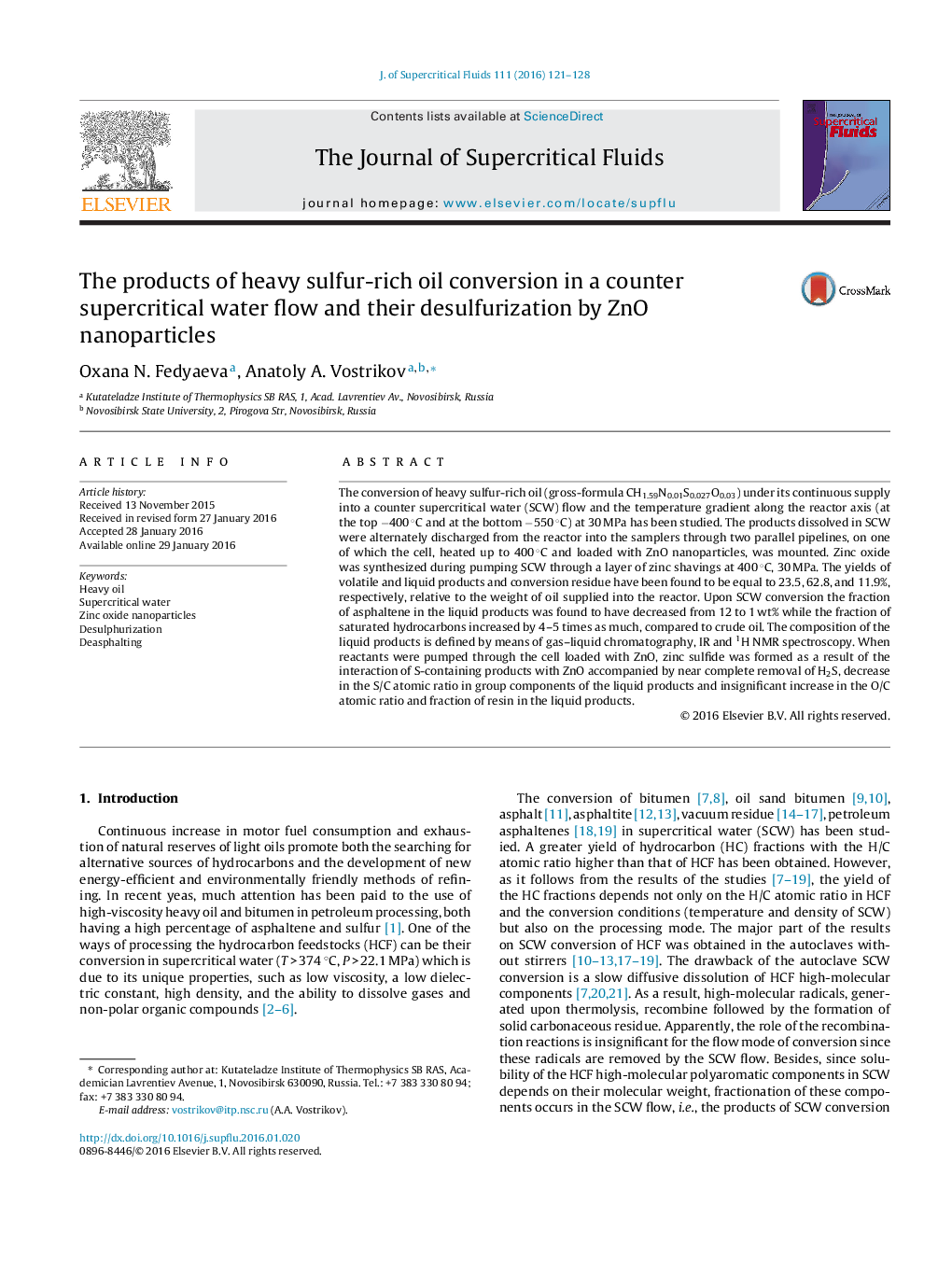| Article ID | Journal | Published Year | Pages | File Type |
|---|---|---|---|---|
| 230084 | The Journal of Supercritical Fluids | 2016 | 8 Pages |
•Conversion of heavy sulfur-rich oil at its continuous supply into a counter SCW flow is studied.•The 400–550 ̊C gradient along the reactor axis provides for a high yield of low-boiling HCs.•Deasphalting of heavy oil occurs at SCW conversion.•The effect of ZnO consists in removing of H2S and extra decomposition of thiols and sulfides.
The conversion of heavy sulfur-rich oil (gross-formula CH1.59N0.01S0.027O0.03) under its continuous supply into a counter supercritical water (SCW) flow and the temperature gradient along the reactor axis (at the top −400 °C and at the bottom −550 °C) at 30 MPa has been studied. The products dissolved in SCW were alternately discharged from the reactor into the samplers through two parallel pipelines, on one of which the cell, heated up to 400 °C and loaded with ZnO nanoparticles, was mounted. Zinc oxide was synthesized during pumping SCW through a layer of zinc shavings at 400 °C, 30 MPa. The yields of volatile and liquid products and conversion residue have been found to be equal to 23.5, 62.8, and 11.9%, respectively, relative to the weight of oil supplied into the reactor. Upon SCW conversion the fraction of asphaltene in the liquid products was found to have decreased from 12 to 1 wt% while the fraction of saturated hydrocarbons increased by 4–5 times as much, compared to crude oil. The composition of the liquid products is defined by means of gas–liquid chromatography, IR and 1H NMR spectroscopy. When reactants were pumped through the cell loaded with ZnO, zinc sulfide was formed as a result of the interaction of S-containing products with ZnO accompanied by near complete removal of H2S, decrease in the S/C atomic ratio in group components of the liquid products and insignificant increase in the O/C atomic ratio and fraction of resin in the liquid products.
Graphical abstractFigure optionsDownload full-size imageDownload as PowerPoint slide
